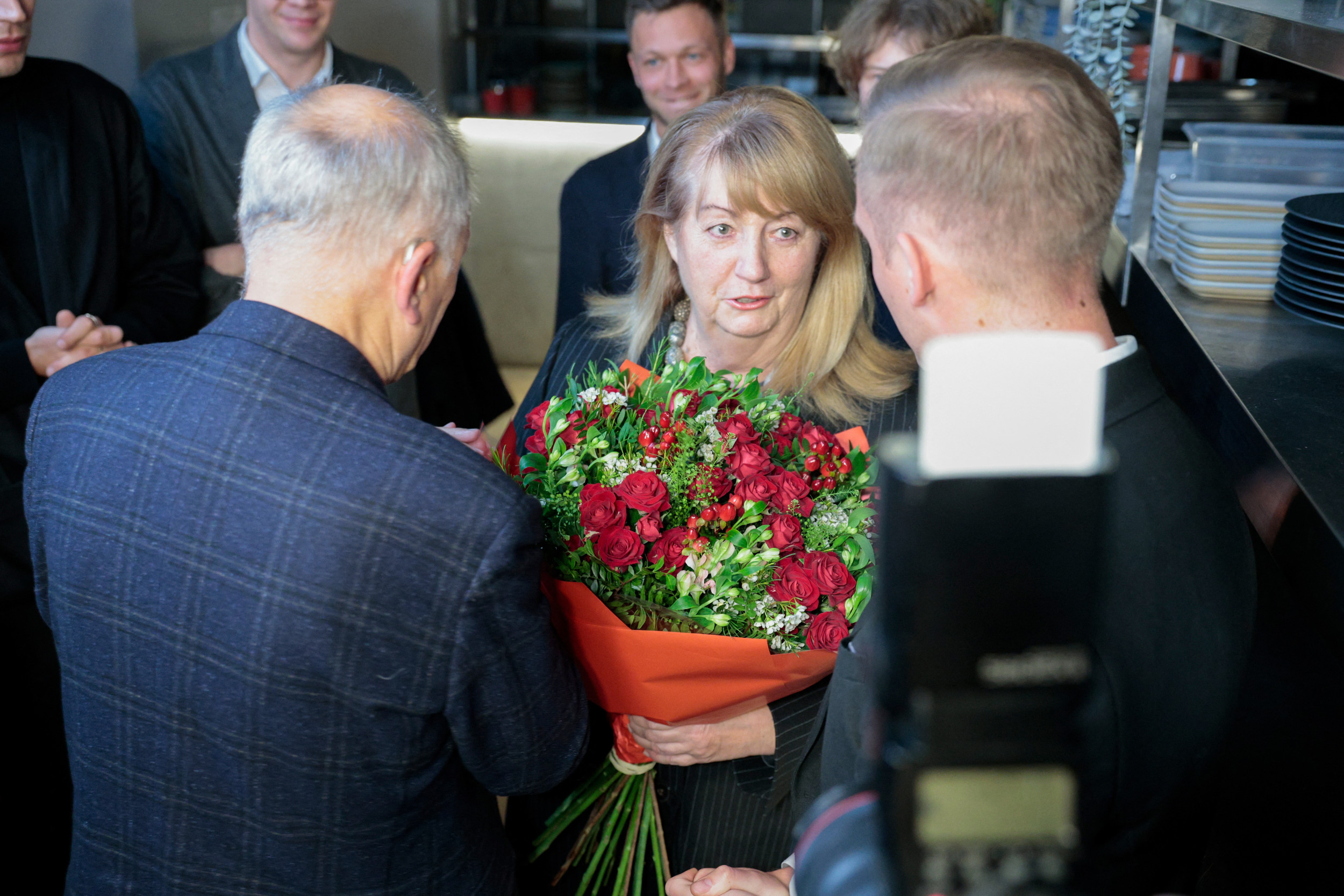Lithuania’s center-left opposition celebrated a significant win on Monday as the Social Democrats dethroned the ruling center-right coalition in recent national elections.
After tallying all votes from Sunday’s elections, the Social Democrats secured 52 seats in the 141-member Seimas.
This marked the end of the four-year leadership of conservative Prime Minister Ingrida Šimonytė and her Homeland Union party, which managed to obtain only 28 seats.
Now led by Vilija Blinkevičiūtė, the Social Democrats are poised to form a majority government, partnering with two smaller center-left parties—the Democratic Union and the Union of Peasants and Greens—who won 14 and 8 seats, respectively.

Petras Malukas / AFP/Getty Images
This coalition will hold at least 74 seats in the legislature.
During a victory address in Vilnius, Blinkevičiūtė expressed her gratitude and excitement for the future, saying, “I am very grateful to the people of Lithuania who were so active today voting for us. The results have shown that the people want change, a completely different government.”
The results were disappointing for the conservatives, who were only two seats shy of the Social Democrats in the first round of voting.
Šimonytė acknowledged the defeat while reflecting on Lithuania’s trend of electoral shifts, stating, “In Lithuania, that’s the way it is—every election we see the pendulum swinging in one direction or the other. We respect the will of the voters.”
The winning coalition’s predecessors faced criticism for their strict pandemic measures, which left many feeling unsupported during lockdowns, as well as their handling of a migrant crisis that many believe was orchestrated by Belarus and Russia.
Following the election results, Foreign Minister Gabrielius Landsbergis announced his resignation and plans to leave politics.
What Does This Mean for Ukraine?
This election arrives at a pivotal moment for Lithuania, a NATO and EU member bordered by Russia’s Kaliningrad exclave to the west and Belarus to the east. With the ongoing conflict in Ukraine, regional security concerns are more pressing than ever. However, analysts suggest that the new government’s foreign policy stance will likely remain consistent, as Lithuania continues to support Ukraine against Moscow.
Voter Sentiment vs. Economic Growth
Despite Lithuania’s impressive economic performance, with significant growth in personal income and low inflation, many voters were unpersuaded by the government’s achievements. Dissatisfaction with social policies overshadowed these economic gains, paving the way for the opposition’s victory.
Nationalist Party Left Out
Another notable outcome from the election is the exclusion of the nationalist and populist Nemuno Aušra party from the governing coalition. With its leader Remigijus Žemaitaitis resigning earlier this year over antisemitic comments, the party finished third with 20 seats but will not be part of the new government.
Voter turnout for the runoff was relatively high, reaching 41.31 percent.
This article includes reporting from The Associated Press
